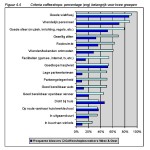Vanessa Watson: Conflicting Rationalities In Cape Town: Power At The Interface
Lecture by Prof. Vanessa Watson, University of Cape Town.
International workshop on ‘Changing socio-spatial configurations of inclusion and exclusion: planning and counter-planning in the African city’, 7-8 March 2012 Uppsala, Sweden.
Ananya Roy: Making Postcolonial Futures: The ‘Slum-Free’ Cities Of The Asian Century
Lecture by Prof. Ananya Roy, University of California.
International workshop on ‘Changing socio-spatial configurations of inclusion and exclusion: planning and counter-planning in the African city’, 7-8 March 2012 Uppsala, Sweden.
Rem Koolhaas – UNB Lecture – Brasilia, Distrito Federal
Part 1/3 – Q/A from UNB stundents to Rem Koolhaas. Brasilia, Distrito Federal, Brazil; August 2011.
Shoot and Edition by Gabi Celani.
Part Two and Three of the lecture are also online.
Jussi Parikka – Media Archaeology
Jussi Parrika is the director of the Cultures of the Digital Economy (CoDE) institute. His lecture Practicing Media Archaeology: Creative Methodologies for Remediation and Creation focuses on some ideas and examples from media archaeological art practice.
By visiting projects by prominent artists from Zoe Beloff to Paul Demarinis, as well as some more recent names, he aims to elaborate some ideas of how such media archaeological art is able to address questions of the “material”, temporality and nature. As such, the projects are themselves excellent articulations of some of the challenges media archaeology faces in terms of developing itself as an innovative approach to digital culture – practically and theoretically.
From: http://medea.mah.se/2011/05/jussi-parikka-on-media-archaeology/
Amber ’10 Art and Technology Festival, Istanbul, Turkey
dancetechtv
WORLDGRIDLAB production team
Asli Yilmazturk
Lévi-Strauss – A Propos Tristes Tropiques
P.S. This is intended for non-profit commentary and educational purposes. No copyright infringement intended. Copyright Disclaimer Under Section 107 of the Copyright Act 1976, allowance is made for “fair use” for purposes such as criticism, comment, news reporting, teaching, scholarship, and research. Fair use is a use permitted by copyright statute that might otherwise be infringing. Non-profit, educational or personal use tips the balance in favor of fair use.


